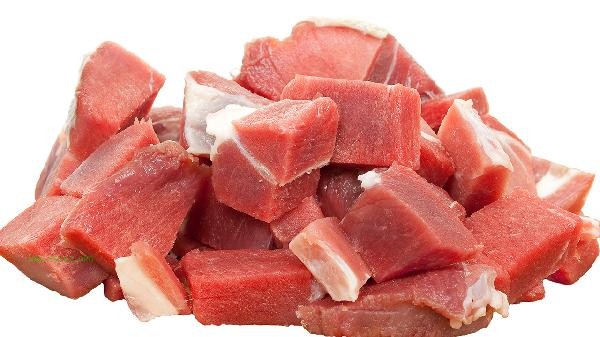Teenagers' inability to grow meat solely through eating may be related to genetic factors, poor gastrointestinal absorption function, unreasonable dietary structure, endocrine disorders, chronic wasting diseases, and other reasons. Suggest adjusting the diet structure to ensure balanced nutrition, and seek medical examination if necessary.

1. Genetic factors
Some adolescents with lean body shape are related to family inheritance. If there is a thin and frail body shape in parents or direct relatives, the probability of their offspring experiencing similar situations is higher. This type of situation usually does not require special intervention, as long as the weight is within the normal range and the growth and development indicators meet the standards. Parents can regularly monitor their children's height and weight changes, and draw growth curves for dynamic evaluation.
2. Poor gastrointestinal absorption function
Chronic gastritis, irritable bowel syndrome and other digestive system diseases can affect the absorption of nutrients. These patients may experience symptoms such as postprandial bloating and abnormal bowel movements. It is recommended that parents take their children for gastrointestinal endoscopy, and if necessary, supplement digestive enzyme preparations such as trypsin enteric coated capsules, compound digestive enzyme capsules, etc. to improve absorption function. At the same time, pay attention to a light and easily digestible diet.
3. Unreasonable dietary structure
If adolescents consume high sugar and high-fat junk food for a long time, or have picky eating habits, it can lead to insufficient intake of key nutrients such as protein and vitamins. We should increase the intake of high-quality protein such as eggs, fish, and soy products, and pair them with dark vegetables such as broccoli and carrots. We should also supplement nuts and dairy products appropriately to ensure that our daily calorie intake meets the standard.

4. Endocrine disorders
Endocrine diseases such as hyperthyroidism and diabetes can accelerate the metabolism of the body, which makes it difficult to gain weight. This type of disease is often accompanied by typical symptoms such as excessive drinking and eating, palpitations, and hand tremors. Diagnosis needs to be confirmed through thyroid function testing, blood glucose monitoring, and standardized treatment with medications such as methimazole tablets and insulin.
5. Chronic consumptive diseases
tuberculosis, chronic hepatitis and other consumptive diseases will lead to excessive nutrition loss. Patients often have systemic symptoms such as long-term low-grade fever and fatigue. After diagnosis, anti tuberculosis treatment or liver protection treatment should be carried out, and nutritional support should be strengthened. Enteral nutrition powder can be used to supplement energy. After the primary disease is controlled, weight will gradually recover.

It is recommended that parents help their children establish regular eating habits, ensure three meals at two o'clock every day, and appropriately increase high calorie healthy foods such as walnuts and avocados. Encourage participation in sports such as swimming and basketball that help build muscle, avoid staying up late and overworking. If the weight continues to decrease after adjusting the diet, it is necessary to seek medical attention in a pediatric or endocrinology department in a timely manner, complete blood routine, complete biochemical tests, hormone levels, and other examinations to rule out the possibility of organic diseases. During the critical period of growth and development, special attention should be paid to supplementing calcium and vitamin D. Drinking 300-500 milliliters of milk per day, and if necessary, using nutritional supplements such as lysine inositol vitamin B12 oral solution under the guidance of a doctor.








Comments (0)
Leave a Comment
No comments yet
Be the first to share your thoughts!